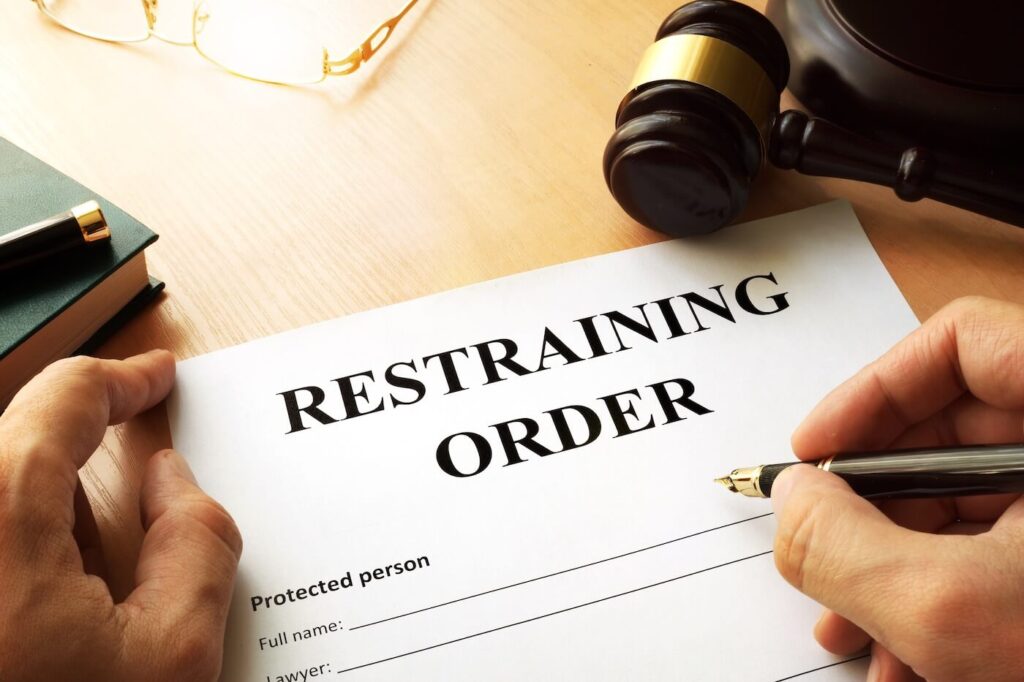By Josh Hamilton on

When you are facing a divorce or custody dispute, few allegations carry the severity of domestic violence. In Arizona, family courts treat claims of abuse with extreme seriousness, especially when the safety of children is at stake. Under Arizona law, domestic violence can impact child custody decisions and even lead to a loss of legal or physical custody altogether.
Importantly, domestic violence need not be recent to affect custody. The courts in Arizona can consider a history of abuse even if the incidents occurred years prior, provided they are credibly documented. If you are concerned about losing custody due to domestic abuse, you should consult an experienced Arizona criminal defense attorney to defend yourself against the charge.
At the Hernandez Hamilton Lamoureux PC, our seasoned lawyers have the skills, experience, and resources to vigorously fight your domestic violence case in Arizona and pursue the most favorable outcome possible.
Arizona Child Custody Law
In Arizona, the legal framework for determining child custody is codified under A.R.S. § 25-403 et seq. The law prioritizes the best interests of the child, which encompass a broad array of factors, including the child’s emotional and physical well-being, the relationship with each parent, and the ability of each parent to provide a safe and stable environment.
Arizona law distinguishes between legal decision-making (formerly known as legal custody) and parenting time (physical custody or visitation). Legal decision-making grants a parent the right to make major decisions regarding the child’s education, healthcare, religion, and personal care. Parenting time refers to the time a child spends in the care of each parent.
Presumption Against Sole or Joint Legal Decision-Making in Arizona
Perhaps the most critical Arizona statute in this context is A.R.S. § 25-403.03(A), which creates a rebuttable presumption that awarding sole or joint legal decision-making authority to a parent who has committed an act of domestic violence is not in the child’s best interests.
What Does This Mean?
This statutory presumption essentially tips the scales. If the court in Arizona finds that a parent has committed an act of domestic violence against the child, the other parent, or another member of the household, the default position is that the abusive parent should not have legal decision-making rights.
To rebut this presumption, the accused parent must present clear and convincing evidence that awarding custody to them is in the child’s best interests. This is a significantly higher burden of proof than the typical “preponderance of the evidence” standard in civil cases.
Note: Preponderance of the evidence is a relatively less stringent standard of proof in civil law where a party must present evidence that makes it more likely than not that their claim is true. It essentially means the evidence presented should show that the existence of a fact is more probable than its non-existence.
How Is Domestic Violence Proven in Custody Cases in Arizona?
The court in Arizona may find that domestic violence occurred based on:
- Criminal convictions for domestic violence-related offenses
- Protective orders (Orders of Protection) issued against the parent
- Police reports, hospital records, or documented injuries
- Eyewitness testimony
- Affidavits or declarations from family members, therapists, or teachers
- The court’s observations of each parent’s behavior during litigation

In cases involving child custody and domestic violence in Arizona, you should note that a conviction is not required for a family court to determine that domestic violence occurred. Family court judges can make findings based on the totality of evidence presented, even in the absence of criminal charges.
Domestic Violence Custody Impact: Parenting Time and Supervised Visitation in Arizona
Even if a parent loses legal decision-making authority due to domestic violence in Arizona, they may still be granted parenting time, depending on the circumstances. However, that parenting time may be:
- Limited in frequency or duration
- Conditional on the completion of anger management, substance abuse treatment, or parenting classes
- Supervised by a third-party professional or agency
Under A.R.S. § 25-403.03(F), the court must ensure that the child and the abused parent are protected from further harm before allowing parenting time with the abusive parent. Courts may require:
- Supervised exchanges or visitation
- Restraints on communication
- Protective orders to remain in effect
In some cases, if the domestic violence is extreme (such as repeated violent assaults, the use of weapons, or abuse resulting in serious injury), the court may deny parenting time altogether.
Impact of Protective Orders on Custody in Arizona
An Order of Protection (commonly known as a restraining order) can have immediate and significant consequences on a parent’s custodial rights. If an Order of Protection is issued against a parent, it may include provisions barring contact with the child, the other parent, or the family residence.
Family court judges are required to consider the existence and terms of such protective orders when evaluating the child’s best interests. Even a temporary order can serve as strong evidence of domestic violence in custody proceedings, although courts will typically consider whether the order was contested, the duration, and the basis of issuance.
False Allegations and Due Process Concerns
Because domestic violence allegations can so drastically affect custody outcomes, Arizona courts are cautious about ensuring due process for the accused parent. Judges are trained to scrutinize the credibility of claims and require supporting evidence before issuing a finding of domestic violence.
Parents who are falsely accused still face an uphill battle, especially if an Order of Protection has been granted or if the child expresses fear of the accused parent. In such situations, legal strategies may include:
- Presenting witness testimony to refute the allegations
- Producing documents (emails, texts, reports) to demonstrate inconsistencies
- Requesting independent custody evaluations or psychological assessments
- Seeking a modification or dismissal of the protective order
A skilled attorney can also help an accused parent file a motion under Rule 35 of the Arizona Rules of Family Law Procedure, seeking an independent mental health evaluation of the other party if there’s concern that the allegations stem from psychological instability or manipulative intent.
Rehabilitative Pathways for Accused Parents
In cases where domestic violence is established, all is not necessarily lost. Arizona law allows for rehabilitative pathways, especially when abuse was situational or occurred in the context of mental health or substance abuse disorders. The courts may consider:
- Completion of a domestic violence offender treatment program
- Compliance with probation or criminal court orders
- Evidence of sobriety and mental health treatment
- A demonstrated change in behavior over time
If a parent can provide compelling proof of rehabilitation and ongoing stability, the court may gradually restore parenting time or even revisit legal decision-making rights after a substantial period of compliance and cooperation.
Emergency Custody and Temporary Orders in Arizona
When domestic violence is alleged, either parent may file for emergency custody under A.R.S. § 25-404. Emergency orders can be issued ex parte (without notice to the other party) if the child is at immediate risk of harm.
Such orders are typically temporary and require a return hearing within 10 days, where the accused parent can challenge the claims. However, during this period, the accused may be denied all contact with the child.

It is prudent for the accused party to be represented at these hearings, as the outcome can have long-term implications in the final custody determination.
Custody Modifications Due to New Incidents of Abuse
Even after a custody order is finalized, new incidents of domestic violence can justify a modification under A.R.S. § 25-411. When a parent becomes aware of abuse (or new criminal charges emerge), they can petition the court to modify legal decision-making or parenting time if doing so serves the best interests of the child. The court will consider:
- The severity and timing of the incident
- Whether law enforcement or child protective services were involved
- The child’s expressed fear or trauma
- Any pattern of past conduct
Parents who fail to report abuse or allow continued contact despite red flags can also find themselves under scrutiny for failure to protect the child.
Get Strong Legal Representation from Our Arizona Domestic Violence Defense Attorneys
Arizona’s family courts face the difficult task of protecting children and survivors of domestic violence while upholding the constitutional rights of parents. The law strikes this balance by creating a presumption against custody for abusers, but allowing rehabilitative possibilities for those who can demonstrate change.
For those facing custody disputes involving domestic violence, the stakes are high. Accused parents must mount a strategic and legally sound defense that addresses both factual disputes and long-term parenting potential.
For over three decades, the Hernandez Hamilton Lamoureux PC has been defending clients in high-stakes criminal defense cases. What gives us the winning edge is our team-based defense strategy, from diligent case preparation to vigorous trial advocacy. We pay attention to even the minutest detail and ensure nothing is left to chance.
We have earned the trust of our clients by fiercely fighting for their rights and interests in every case. Our award-winning Arizona domestic violence lawyers are ready to help you defend your freedom and protect your family. To schedule your free consultation, call us 24/7 at 520-882-8823 or contact us online.
Back to Blog




